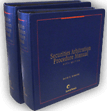If you rely on someone to manage your investment portfolio, then you should understand the basic concept of “fiduciary duty.” A professional with a “fiduciary duty” must always act in their client’s best interests and is liable if they do not. But there are some important factors to know:
Not everyone who works with investments has a fiduciary duty to you
“A fiduciary duty is the highest standard of care,” but that high standard is not universally applied. There are many roles in the financial industry, such as brokers, financial advisors and money managers, who are not guaranteed to have a fiduciary duty.
Instead, many in the financial investment industry work under what is known as the “suitability standard.” Someone working under the suitability standard does not need to put your interests before their own. They do need to act in good faith that a given investment choice will benefit you but are not required to advise you on opportunities they have no secondary interest in.
Fiduciary duty is a promise, not a guarantee
It is simple enough to know if your advisor is a fiduciary or not. You may ask them. You can easily check their credentials. Having a fiduciary work on your investment portfolio is a significant benefit. However, just because they are supposed to act in your best interests doesn’t mean they will.
When fiduciaries breach their duty to clients, they put their clients at risk for negative outcomes. We’ve written previously on what to look out for when it comes to a breach of duty.
Fiduciaries are a good thing, but nothing is certain
Overall, relying on responsible, thoughtful investment professionals with a fiduciary duty is a good thing. But you may still wonder how much you can trust that individual to do the job they promised they could do. If you find you misplaced your trust, you don’t have to accept the fallout. You can take action. Contact an attorney who can assess your case and file a claim against brokers and firms.


